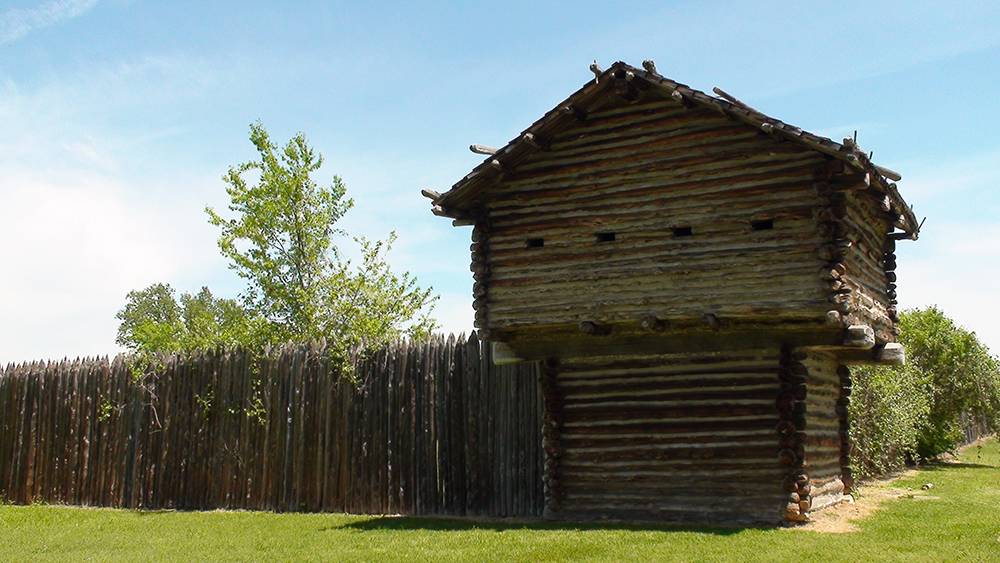A Fresh Look at the Fort Parker Raid of 1836

A Fresh Look at the Fort Parker Raid of 1836
Wednesday, March 29 | 3:30 p.m. | Brazos Hall
A Public Lecture by
Dr. Daniel Gelo
Professor of Anthropology, Stumberg Distinguished University Chair, and Dean of the College of Liberal and Fine Arts at the University of Texas at San Antonio
Sponsored by the Department of History and the Center for the Study of the Southwest
Texas was an independent Republic for just a few years, between 1836 and 1846. This relatively short time span was, however, particularly prolific in producing frontier myths, heroes, and antiheroes, some of which have resisted the test of time surprisingly well. The Comanche Indians of the southern plains are doubtlessly one of the most enduring icons of that mythical legacy. On May 19, 1836, an Indian raid on Fort Parker, in today’s Limestone County, Texas, resulted in the killing and capture of several Anglo settlers, including Cynthia Ann Parker –future mother of the famous Comanche leader Quanah. This fabled incident has become one of the foundational myths of the Texas Republic. Dr. Gelo’s careful scrutiny of eyewitness accounts, and his understanding of indigenous geopolitical strategies at the time will reveal what actually happened at Fort Parker, the exact identity of the attackers, and what their motivations were, redressing both the standard account of the raid and some recent interpretations.
Attendees are encouraged to visit the exhibit “A Land without Borders: The Comanche Range,” produced by a group of Texas State Public History students, currently on display at the Center for the Study of the Southwest in Brazos Hall.
 Dr. Daniel Gelo is Professor of Anthropology, Stumberg Distinguished University Chair, and Dean of the College of Liberal and Fine Arts at the University of Texas at San Antonio, where he has taught and researched since 1988. He holds a Ph.D. in anthropology from Rutgers University, and is a recognized authority on the history and culture of the Plains Indians. His scholarship concerns also cognitive anthropology and the symbolic analysis of expressive forms such as myth, ritual, language, music, and visual materials. He has conducted fieldwork with Comanche people since 1982, being also the only anthropologist to have conducted fieldwork in all four main Indian communities in Texas: the Tigua, Kickapoo, and Alabama-Coushatta reservations, and the urban Indian enclave in Dallas. His publications include Comanches in the New West, 1896-1908 (1999), Texas Indian Trails (2003), and Indians of the Great Plains (2012). His work has been published in Journal of American History, Ethnohistory, Southwestern Historical Quarterly, American Indian Quarterly, American Ethnologist, Current Anthropology, Journal of American Folklore, etc. He is the author of the premier entry on the Comanches in the Human Relations Area Files, the most important ethnographic database available on-line. Dr. Gelo also researched and co-wrote three award-winning film documentaries on Texas Indians for public television, and he is the co-author of a national elementary textbook series, contributing to six national and state social studies texts for grades 3-6 published in 1997. His work has been funded by the Wenner-Gren Foundation for Anthropological Research, Inc., the National Endowment for the Humanities, and Humanities Texas. He has earned numerous recognitions.
Dr. Daniel Gelo is Professor of Anthropology, Stumberg Distinguished University Chair, and Dean of the College of Liberal and Fine Arts at the University of Texas at San Antonio, where he has taught and researched since 1988. He holds a Ph.D. in anthropology from Rutgers University, and is a recognized authority on the history and culture of the Plains Indians. His scholarship concerns also cognitive anthropology and the symbolic analysis of expressive forms such as myth, ritual, language, music, and visual materials. He has conducted fieldwork with Comanche people since 1982, being also the only anthropologist to have conducted fieldwork in all four main Indian communities in Texas: the Tigua, Kickapoo, and Alabama-Coushatta reservations, and the urban Indian enclave in Dallas. His publications include Comanches in the New West, 1896-1908 (1999), Texas Indian Trails (2003), and Indians of the Great Plains (2012). His work has been published in Journal of American History, Ethnohistory, Southwestern Historical Quarterly, American Indian Quarterly, American Ethnologist, Current Anthropology, Journal of American Folklore, etc. He is the author of the premier entry on the Comanches in the Human Relations Area Files, the most important ethnographic database available on-line. Dr. Gelo also researched and co-wrote three award-winning film documentaries on Texas Indians for public television, and he is the co-author of a national elementary textbook series, contributing to six national and state social studies texts for grades 3-6 published in 1997. His work has been funded by the Wenner-Gren Foundation for Anthropological Research, Inc., the National Endowment for the Humanities, and Humanities Texas. He has earned numerous recognitions.
